Poet Edna St. Vincent Millay was born on February 22, 1892, in Rockland, Maine.
Millay’s middle name, St. Vincent, came from St. Vincent hospital, where her uncle’s life was saved shortly before she was born. Millay’s parents divorced when she was young and she, her mother, and siblings moved several times before settling in Camden, Maine. It was there that Millay would write the first of her poems that would one day bring her fame.
Millay really got into writing in high school, starting the school’s literary magazine. When she was 14, she won the St. Nicholas Badge for poetry and the following year her poems were published in several different publications.
At age 19, Millay became embroiled in a controversy when she entered her poem “Renascence” in a contest. Many considered the poem to be the best submission. When it was awarded fourth place, a scandal erupted with even the contest winner proclaiming Millay’s the superior work. Shortly after the contest, wealthy patron Caroline Dow heard Millay reading her poetry and was so moved by it, she offered to pay for her education at Vassar College.
After graduation, Millay moved to New York City. While Millay continued to write poetry, she also wrote plays to help support herself. She eventually helped to found the Cherry Lane Theater “to continue the staging of experimental drama.” Millay also wrote magazine articles under the name Nancy Boyd to help pay the bills. She chose to use a fake name to protect her privacy. As she grew more famous, the magazine offered to double her pay to use her real name, but she refused. In 1923, Millay became the third woman to win a Pulitzer Prize for poetry for her work “The Ballad of the Harp-Weaver.”
After spending time in Europe, Millay got married and bought a farm near Austerlitz, New York. While she had been a pacifist during World War I, Millay strongly supported the US joining World War II. She joined the Writers’ War Board, producing poetry and other propaganda to support the war effort. She was so distraught over the Nazi destruction of the Czechoslovakia town of Lidice, she wrote a 32-page poem about it that later served loosely as the basis for the movie Hitler’s Madman. In 1943, she became the sixth person and second woman to receive the Frost Medal for her lifetime of poetry contributions.
Millay had been in a car accident in the 1930s that left her in near-constant pain. She was riddled with medical bills, had to care for her sister, and invested a large amount of money in horse-racing, leaving her in significant debt in her later years. Millay died after a fall down the stairs on October 19, 1950. After her death, Millay’s sister turned her home into the Millay Colony for the Arts, which operated until 1986. Fellow poet Richard Wilbur said, “She wrote some of the best sonnets of the century.”
Click here to read some of Millay’s poetry.
Click here to see what else happened on This Day in History.

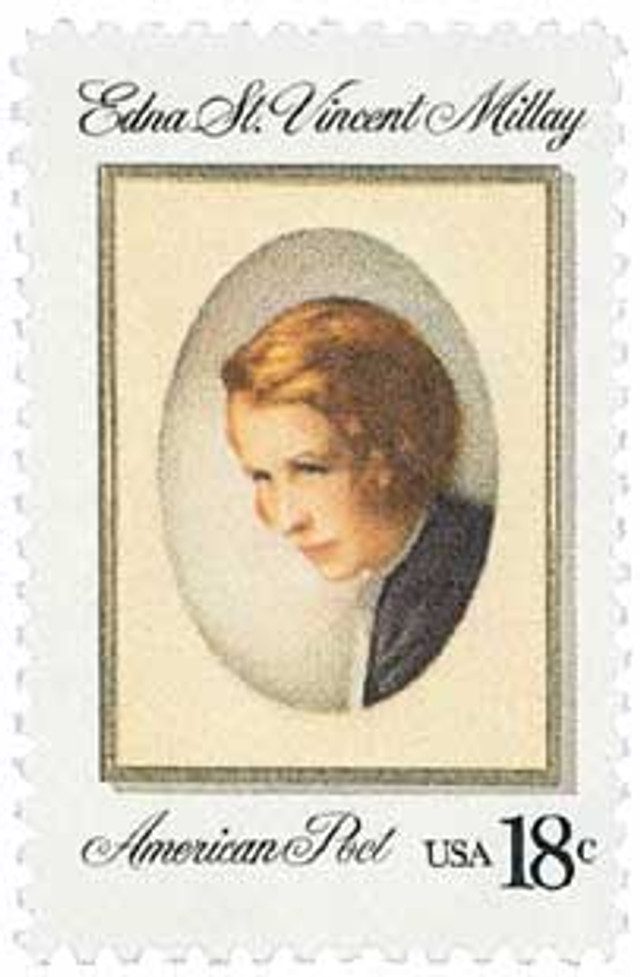
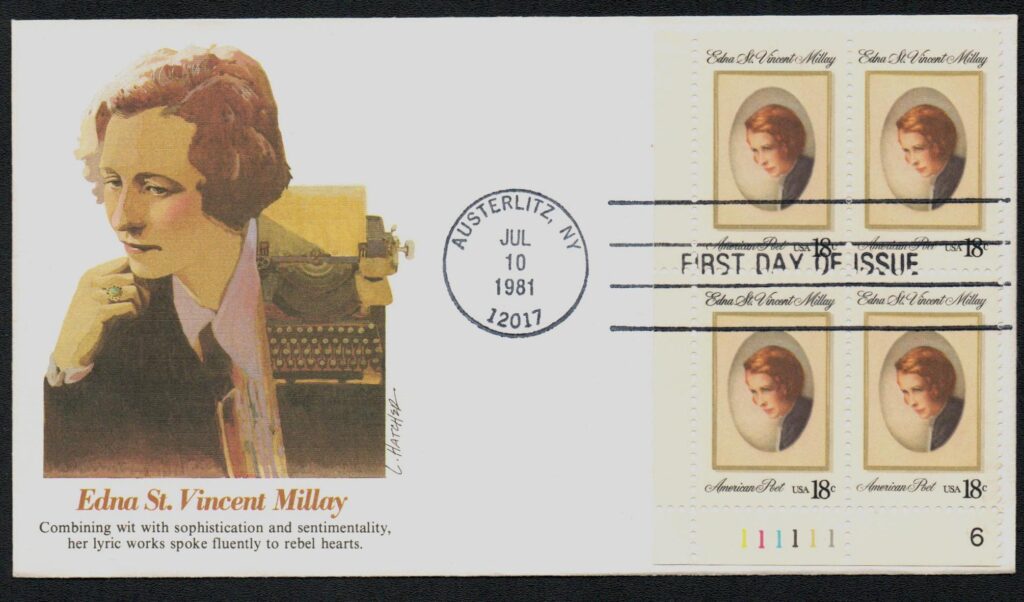
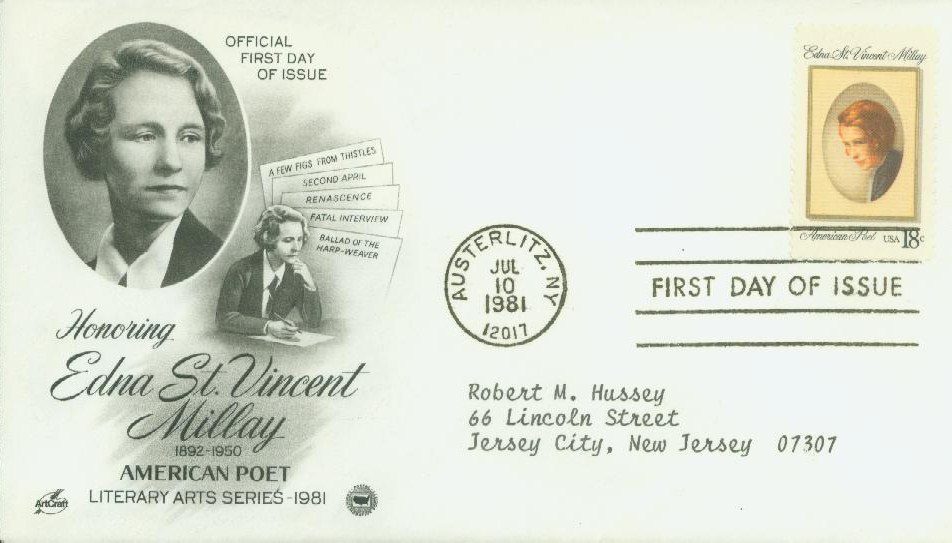
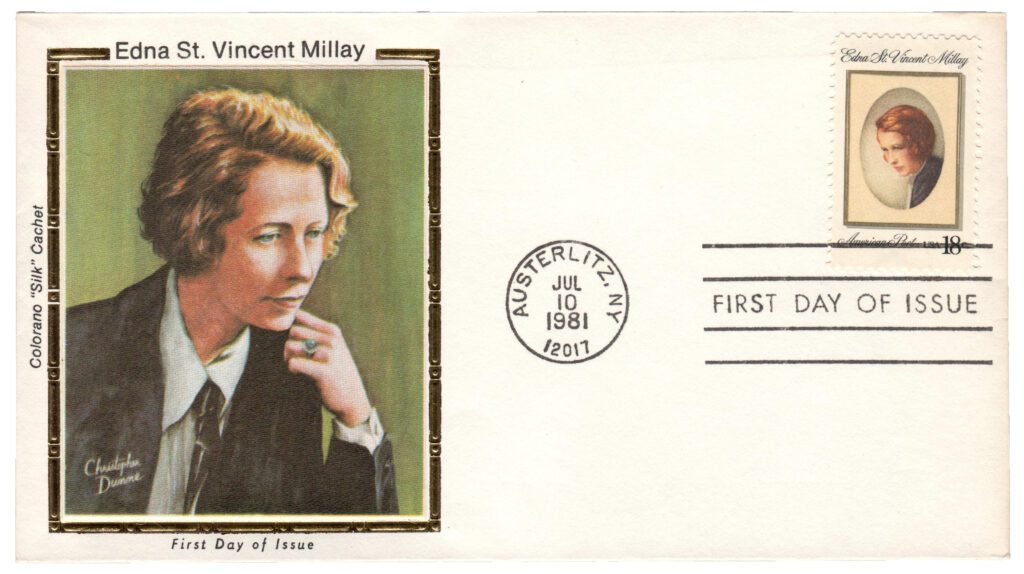
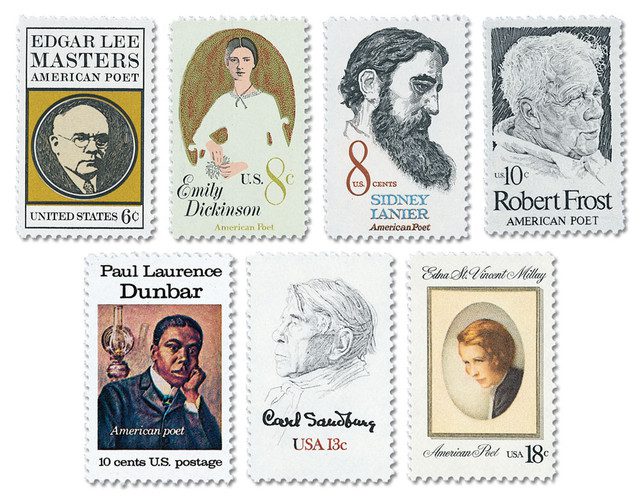
No mention of the famous verse from her poem First Fig;
“My candle burns at both ends;
It will not last the night;
But ah, my foes, and oh, my friends—
It gives a lovely light!â€
“I only know that summer sang in me a little while, that in me sings no more.”
She was born in Rockland Maine not Maryland. Otherwise great write up as always.
Thank You for the wonderful article. Thank you for sharing poems which was amazing. Thanks for taking the time and energy for the best you do. God Bless
A wonderful article. Thank you Mystic.
I have no idea why I don’t remember ever hearing about Edna St. Vincent Millay but, my goodness !, she was indeed an incredible Lady and a great poet. I read some in your access to poems she wrote. And the long, detailed article about her was fascinating and interesting and amazes me that I do not recall ever hearing her name , but I am proud to know about her now. She obviously was incredibly talented with deep understanding of what she was saying through the writing of her poems. Absolutely amazing !! THANKS, Mystic, you did it again !!
I always learn something new and a stamp and the information you have given us. Thanks for picking this including many of her poems. They both are very interesting.
Can you add a link to the PDF for this article?